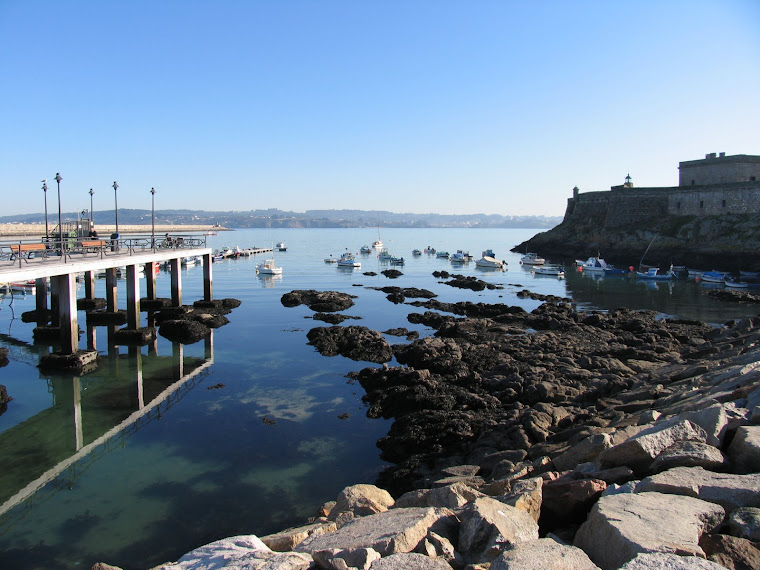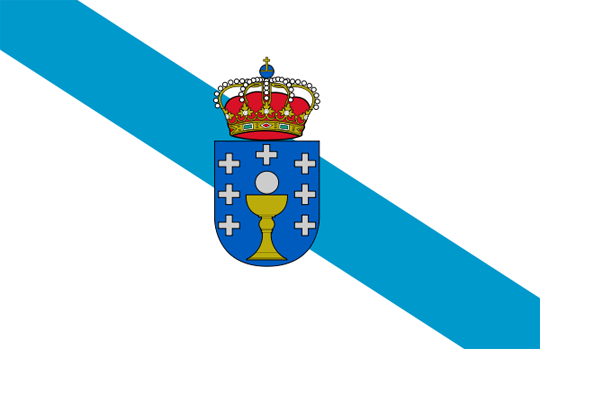 According to people who should know better, some one million mobile phones are bought in this country each year and then shoved in a drawer somewhere and never see the light of day again.
According to people who should know better, some one million mobile phones are bought in this country each year and then shoved in a drawer somewhere and never see the light of day again.Where would we all be without drawers I hear you ask?
Well drawers are good for hiding and storing some unwanted items but their importance pales into insignificance when compared to the importance of bookshelves.
In the UK, five million Spanish language books are bought each year by people smitten by Espana. You know what its like; the sangria’s flowing and the sun’s shining and you vow not to return to Tossa de Mar without being able to give Manuel the “awright mate fancy a cup a tea” waiter a dose of his own medicine.
You consider joining a conversational Spanish class and then decide that the first thing you need is a textbook to get you back in the mood. Ignoring the books bought for schools and colleges about 250,000 other people are thinking along the same lines as you every October.
So its off to Smiths or online to Amazon to sort it all out but when you do get round to flicking through the pages the 13 verb tense endings to learn under a language where the word for “dog” sounds the same as for “but” and where adjectives come after nouns and everything is either masculine or feminine soon has you eyeing up your bookcase for a slot to store your new Spanish textbook – permanently.
After all - you’ll probably be going to Greece next year anyway and everybody speaks English there. In order to learn the beautiful Spanish language you have to have a passion to go with it. For example, romance spurs the mind into action as does food.
 On the assumption that “dos canas y un bocadillo de queso por favor” (two beers and a cheese sandwich please) may be more use to you than what Ingrid Bergman said to Humphrey Bogart in Casablanca – “besame como si fuera la ultima vez” (kiss me as if it were for the last time) - we intend to concentrate on food and drink as a way to improve your Spanish speaking skills.
On the assumption that “dos canas y un bocadillo de queso por favor” (two beers and a cheese sandwich please) may be more use to you than what Ingrid Bergman said to Humphrey Bogart in Casablanca – “besame como si fuera la ultima vez” (kiss me as if it were for the last time) - we intend to concentrate on food and drink as a way to improve your Spanish speaking skills.In the case of AC this food is both delicious and good value and the place to go to get the best of it is not where the restaurant owner impresses you with his English (by telling the sort of jokes a five year old wouldn’t laugh at) but in the places where the menu is pinned to the wall or is no more than a blackboard and where the people are too busy getting on with their own lives to be interested in yours by learning English.
That said they will be polite, patient and overwhelmingly helpful but try and bear in mind that set meals for a fiver cooked on a barbeque in the glare of an open bar is their way of life and is not just a gimmick for commercial gain or for your amusement.
Having made up your mind that you might be able to string three or four words together and accept that the 25 Spaniards in the bar listening with one ear aren’t going to roll about laughing at you for trying to get by (they will only help and encourage and apologise for their own shortcomings) why not go for it?
On this trip to AC you will need to eat and drink something. The Hotel food will be acceptable, especially breakfast, and the 5 star restaurant run by the owner who speaks superb English because he used to be the wine waiter at the Ritz might be part of your plans - but they should be a small part only.
You might consider why with 500 bar/restaurants in AC you, or anybody else for that matter, would need to stay in the hotel or go English! These establishments may however prove useful as somewhere you can go to get exactly what you want in a language you understand - but at a price!
For the moment why not try your hand in a local bar/restaurant. The usual rules apply and the most important of these is keeping it simple. You’re not going to spend a fortnight in the place and neither is anyone else – they want to serve you quickly, politely and with a minimum of fuss and then see the back of you. Its best to go straight up to the bar itself rather than complicating things by getting a table and then trying to catch someone’s eye.
 As you stroll up the person serving will greet you. He or she may say any number of things but no matter all you need to say is Hola, pronounced O-la. Then say what DRINK you want. Nothing else just the drink. If you wanted a small draught beer you would just say “una caña” – its pronounced oonah canya. He or she will understand straightaway. If you are feeling brave stick a por favor – please- on the end but its not necessary or expected. Asking politely is expected.
As you stroll up the person serving will greet you. He or she may say any number of things but no matter all you need to say is Hola, pronounced O-la. Then say what DRINK you want. Nothing else just the drink. If you wanted a small draught beer you would just say “una caña” – its pronounced oonah canya. He or she will understand straightaway. If you are feeling brave stick a por favor – please- on the end but its not necessary or expected. Asking politely is expected.Whilst they are still reeling from the power of your grasp of the Spanish language (and probably from the fact that they have been privileged enough to meet the only Englishman this century to be able to order a beer in AC correctly) hit them with the other drink by saying “ y una coca cola” pronounced “ee oona coca cola” which roughly translated means: and a coke.
When your drinks arrive don’t pay, you wouldn’t pay for a meal upfront anywhere else other than probably in Tesco’s in the UK or a restaurant in Benidorm and you won’t be paying here until you have found the drink to your liking, have enjoyed it and watched the world go by for 20 minutes or so.
In a touristy type place you may receive a chitty with the drinks saying how much you owe. In AC you will have to ask “how much is that or how much do I owe you or can I have my bill” which in itself may be overkill for a beer and a coke.
Go back up to the bar to the person who took the order and just say “Cuanto es” – how much is it? Almost without exception you will get a little till receipt or will see the numbers on the register so you don’t have to understand the price that the barperson rattles off. In any event you should always carry a 5 euro note. You know this will cover the two drinks with plenty of change so just hand it over whatever is said.
On most occasions your change will be returned to you in a saucer. If you want to, leave a coin or two in the saucer as a tip and take your leave. What could possibly have gone wrong? Nothing. Say gracias and adios and head off to the next bar you fancy.
 If you are going for food the same rules apply although you may have to compromise initially. There may be oodles of mouth-watering dishes on the menu but you need to know what you want before you go in. If you want the octopus cooked in its own ink followed by roast suckling pig then see the English speaking restaurant owner above – just remember to book a week in advance.
If you are going for food the same rules apply although you may have to compromise initially. There may be oodles of mouth-watering dishes on the menu but you need to know what you want before you go in. If you want the octopus cooked in its own ink followed by roast suckling pig then see the English speaking restaurant owner above – just remember to book a week in advance.If on the other hand your mind is fixed on a tapa (a small portion) or a racion (a much bigger portion) of ham or olives or loin or mussels or a burger or a pork chop or a salad or a bowl of garlic soup or some spicy sausage or some roast potatoes in a dipping sauce or chicken wings or spare ribs or a toasted ham and cheese sandwich or a slice of ice cream cake or cheesecake then you need to work out how to order one or all of these in Spanish to add to your drinks round. It’s just as easy and by using real Spanish to order you will end up with real Spanish food.
So remember when you come to AC it is best to leave that mobile in the drawer at home but whatever you do don’t leave your new Spanish book in the bookcase or you could end up missing it.
Buen provecho!


No comments:
Post a Comment